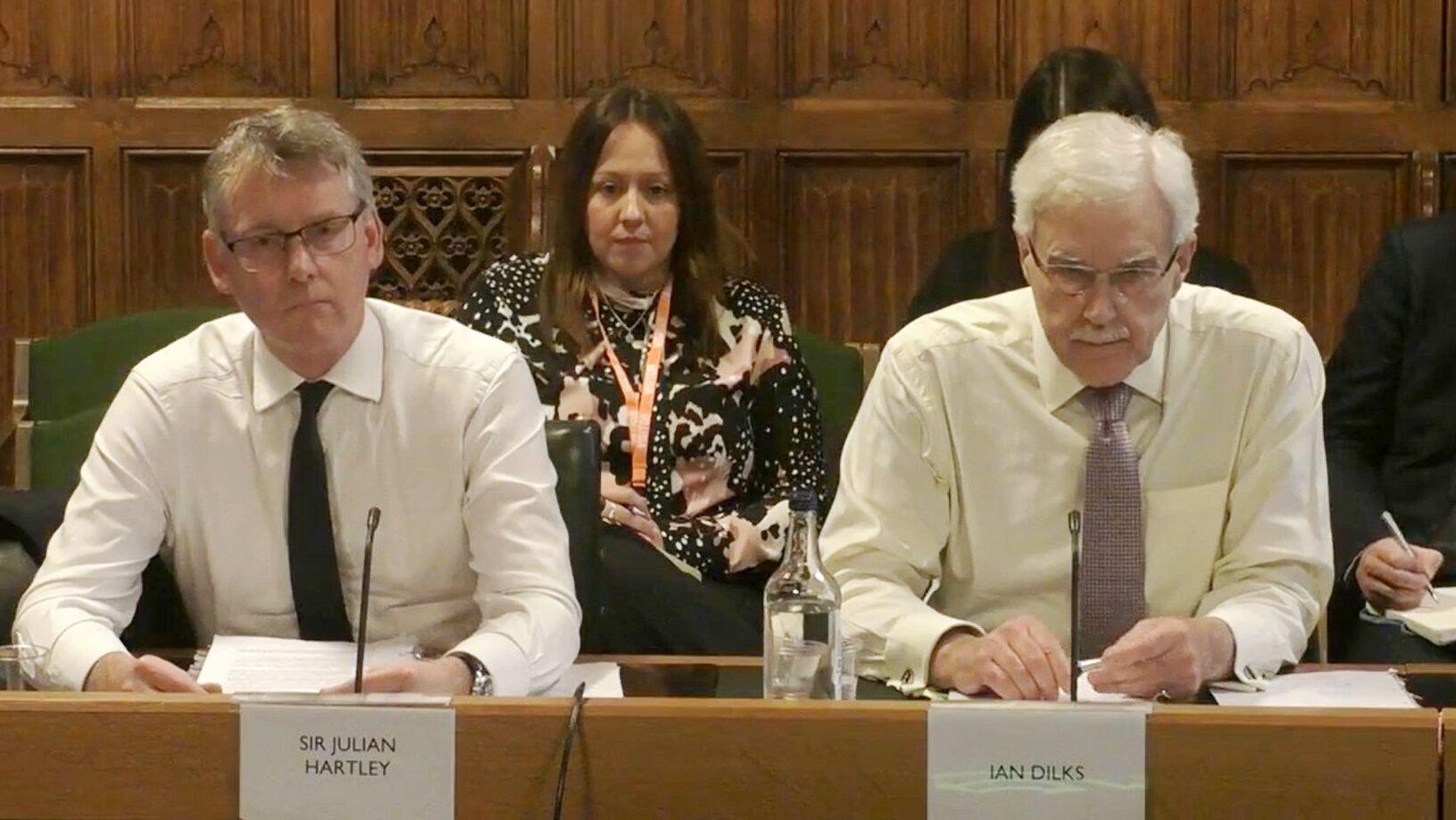Tackling the rising tide of violence against NHS staff
Healthcare Manager probes the rising levels of assaults and abuse against NHS staff – and asks what employers can do to protect people at work.

That violence and aggression is perpetuated against NHS staff is nothing new. But recent research has shown such attacks are on the rise. Public concern about the issue is now such that the Government has supported Chris Bryant’s private member’s bill seeking to double sentences for assault against emergency workers.
Research by Unison and the Health Service Journal, published earlier this year, found the number of attacks on staff is increasing, and shows a marked correlation with the NHS’s declining financial and waiting time performance.
The research found an average increase of 9.7% in assaults across the NHS since 2015-16, the last year for which national figures were collected (see opposite). But in trusts reporting deficits of over £20m, reported assaults were up 23.1%, while those reporting financial surpluses saw attacks rise by just 1.5%.
In acute trusts failing to meet the elective care target of treating 90% of patients within 18 weeks of referral, there was a massive 36.2% increase in attacks on staff. But the number of attacks in mental health trusts, notorious for high levels of violence, has levelled off, perhaps reflecting efforts across the sector to tackle the issue.
Stressed staff, stressed patients
MiP national officer Claire Puller says the data makes it clear that putting trusts under pressure results in increased pressure on staff. “Where the trust is in debt, the staff will be stressed and the patients will be stressed,” she explains. “We also forget what an abnormal, stressful experience being in hospital can be for patients.”
While working as an NHS occupational therapist, Puller experienced violence from patients on three separate occasions, but she believes support for staff experiencing aggression and violence at work has improved.
“The first time, I was made to sit down and go through what I had done to provoke the patient to assault me. By the third time, it was just seen as unacceptable. The NHS now understands that if something has happened to staff, they need to be taken care of. A lot can be accepted when people are unwell but there has to be a line drawn in the sand.”
Lesley Lashmar is restrictive intervention team leader at Lincolnshire Partnership NHS Foundation Trust, which has seen an overall 30% fall in incidents of violence and abuse. She agrees that the attitude that violence is ‘part of the job’ is dying out.
“This is not a risk-free environment,” she says. “There is no let up, no down time anymore. Patients often come in with nothing, when they used to come with their bags ready packed. But admissions are now very risk aversion-led and staff know that if something is reported it will be responded to.”
The trust employs full time instructors who train staff in de-escalation techniques, which start as soon as a patient is becoming agitated, and restraint techniques, which should be a last resort. On wards for older people, a new shift has been instigated to improve cover at peak times for incidents.
“Boredom is often an issue in triggering incidents, so occupational therapy and activity co-ordinators play key roles in looking at ways to engage people,” says Lashmar.
The trust also works with police liaison officers, who routinely spend time on the wards, Lashmar explains, so they can respond quickly when an incident cannot be contained by staff.
Lincolnshire’s relatively low levels of agency staffing may also have contributed to its success in reducing violence, although Ms Lashmar admits incident levels may rise following the opening of a psychiatric intensive care unit last year.
Culture of acceptance
The Health Foundation recently funded a project aimed at reducing violence by up to 80% at two NHS trusts – South London and the Maudsley (SLAM) and Devon Partnership – which highlighted the need to improve clinical leadership at ward level. SLAM medical director Dr Michael Holland describes how violence levels on some wards were so high that staff were afraid to come to work – but also how a culture of acceptance had grown up around violence.
“You need process changes and environmental changes, but also a cultural change – and you need the leaders to unlock that,” says Holland. “We put in a process called ‘intentional rounding’, though the staff prefer the term ‘intentional engagement’: basically, going round and asking every patient how they are, how are they feeling, do they need anything?
“We also tracked flash points, which were found to come down to things like frustration, such as when a patient has leave [clinical authorisation to leave the ward] but has to wait two or three hours to get it,” he continues. “On one ward meal times were a flashpoint – we realised there were more patients than chairs. Anyone would get frustrated with that.”
Holland echoes Lashmar’s observations that in-patients are more unwell than they used to be. “The patients have to get out of the wards sooner, to free up beds,” he explains. “These are challenging places to work and there is also unrelenting demand on staff, with no breaks in demand. There needs to be capacity in the system to allow them to become therapeutic places.”
Although around a third of SLAM’s wards are now close to zero violent incidents, the trust still has some way to go to match the performance of Devon Partnership, which has achieved the aimed-for 80% per cent reduction in incidents – a success which Holland attributes to strong leadership at both ward and management level. “You can tell the difference there, you can feel it,” he says.
‘We want it now’
While mental health trusts routinely treat violence and aggression as a clinical issue, acute trusts are more likely to deal with it through operational and security management teams. But the message is the same.
“We needed a cultural shift to make it clear these incidents are not part of the job,” says Jayne King, head of security at Guys and St Thomas’ NHS Foundation Trust. The trust launched its ‘Keep our staff safe’ campaign in 2016 after its chief nurse realised violent incidents were on the rise.
 “Some people will always act out because of their illness or treatment, and staff will always make allowances. But we have clear expectations about behaviour and what is unacceptable”
“Some people will always act out because of their illness or treatment, and staff will always make allowances. But we have clear expectations about behaviour and what is unacceptable”
“Some people will always act out because of their illness or treatment, and staff will always make allowances. But we have clear expectations about behaviour and what is unacceptable,” King adds.
She says the trust’s definition of violence includes both physical and non-physical contact. “It doesn’t have to be a punch in the face. A quiet voice can be more intimidating. And that type of intimidation can be more challenging for staff; it can be very wearying,” King explains.
King thinks increasing rates of violence in acute trusts may be down to what she calls a ‘we want it now’ culture. “You can see frustration on the rise in all aspects of life,” she says. “As a security colleague of mine says, the genie is out of the bottle about this; the issue now is how we handle it.”
While half of all violent incidents across the trust happen in accident and emergency, King says other ‘hot spots’ include the maternity and children’s services at the trust’s specialist children’s hospital.
“At the children’s hospital emotions are at full pelt,” she explains. “Lone working in the community in care of the elderly is another hot spot, largely because of the behaviour that can result from dementia and delirium. Lone workers need a 360º view of risk assessment – before they leave the office, when on the visit and afterwards. In accident and emergency, it’s more about early intervention to de-escalate a situation.”
All violent incidents at Guy’s are subject to a post-incident review. And if an assault on staff merits police involvement the trust facilitates what is needed, with police interviews carried out in work time and staff being accompanied to court if necessary.
As well as the courts, offenders also face a range of sanctions from the trust, of which the ultimate is exclusion. NHS guidelines say exclusions must be reviewed after a year, during which time arrangements are made for offenders to be treated at another trust.
“Sometimes relationships between the clinicians and the patient have completely broken down and such measures can be an opportunity for the patient to start afresh,” King says.
NHS turns spotlight on violence against staff
The NHS is to resume collecting statistics on assaults against staff, two years after the practice was discontinued in England, while the Care Quality Commission (CQC) is to extend its inspection regime to include hospital security arrangements, Healthcare Manager has learned.
NHS Protect ceased collecting data on assaults against staff when the organisation was subsumed into NHS Counter Fraud Authority in 2016 – a move described by UNISON national officer for health Celestine Laporte as “a very strange, ill-judged decision.”
The Department of Health and Social Care (DHSC) told Healthcare Manager that officials are now working with NHS Improvement on collecting new data on assaults and abuse suffered by NHS staff in England.
A DHSC spokesman said the department is also working with NHS England and NHS Improvement to “agree leadership for the central security management functions required to support trusts”, and with the CQC to ensure that security management is tested as part of the inspection regime.
He added: “NHS staff work incredibly hard in a high-pressure environment, so it’s completely unacceptable for them to be subject to aggression or violence.” NHS Improvement declined to comment.
Related News
-

Regulating the managers: more questions than answers
The Labour government’s plans for regulating NHS managers are still shrouded in mystery, and the three options on the table each have their pros and cons. Rhys McKenzie weighs up the choices and gauges the views of MiP members on the best way forward.
-

The inspector falls: why the CQC needs a fresh start
After years of chaos, the Care Quality Commission urgently needs to rebuild trust and credibility with the public and the services it regulates. What needs to change and what are the priorities for new boss Sir Julian Hartley? Alison Moore reports.
-

Voice, value and vision: what analysts need from the NHS
Data analysts play a vital role in an NHS which is increasingly data-driven and focused on public health trends. But the NHS faces fierce competition for skilled analysts and many feel the health service fails to value them or fully use their talents. Alison Moore reports.